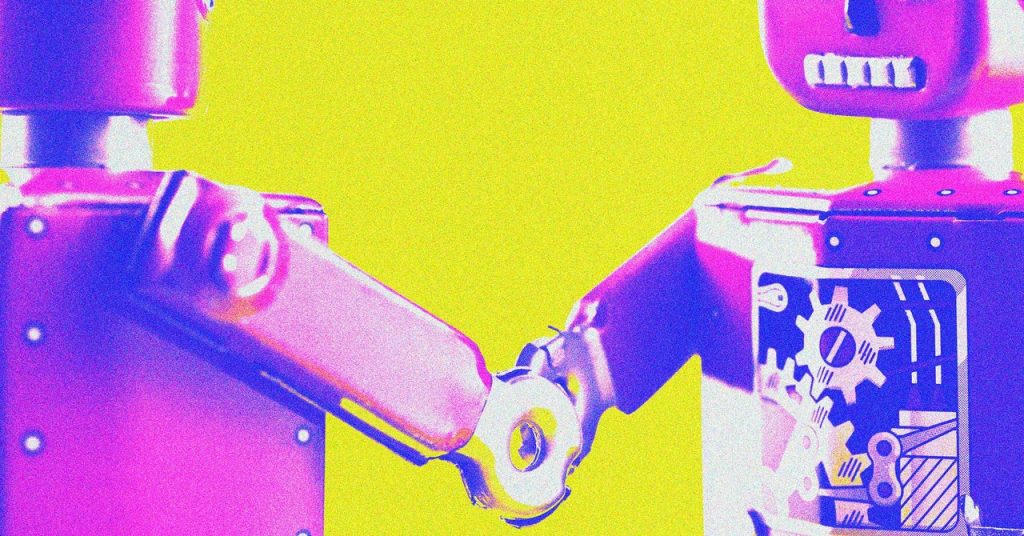AI Collaboration: Enhancing Problem-Solving with Multi-Agent Systems
Introduction
Turning to a friend or coworker can make tricky problems easier to tackle. Now it looks like having AI chatbots team up with each other can make them more effective.
Exploring AutoGen: A Framework for AI Collaboration
What is AutoGen?
I’ve been experimenting with AutoGen, an open-source software framework for AI agent collaboration developed by researchers at Microsoft and academics from Pennsylvania State University, the University of Washington, and Xidian University in China. This software leverages OpenAI’s large language model GPT-4 to create multiple AI agents with different personas, roles, and objectives to solve specific problems.
Testing AI Collaboration
To test AI collaboration, I created a “reporter” and “editor” using AutoGen’s code. These AI agents discussed writing about AI agent collaboration, emphasizing the importance of showcasing how industries like healthcare, transportation, and retail use multi-agent AI. They also agreed to explore the ethical dilemmas posed by the technology.
The Potential of Multi-Agent AI Systems
Addressing Weaknesses in AI
Large language models like those behind ChatGPT often struggle with math problems due to their reliance on statistically plausible text rather than rigorous logical reasoning. In a paper presented at an academic workshop, the researchers behind AutoGen demonstrated that AI agents collaborating can mitigate this weakness. Teams of two to four agents solved fifth-grade math problems more reliably than a single agent and were able to reason out chess problems and refine computer code through discussion.
Cross-Model Collaboration
Other studies have shown similar benefits when different AI models, even those from corporate rivals, collaborate. At the same workshop at a major AI conference called ICLR, a group from MIT and Google had OpenAI’s ChatGPT and Google’s Bard work together by discussing and debating problems. They found that the duo were more likely to converge on a correct solution together than when working solo. Another recent paper from UC Berkeley and the University of Michigan showed that having one AI agent review and critique another’s work could improve the supervising bot’s ability to upgrade the other agent’s code.
Humanlike Behavior in AI Teams
Personality Traits in AI Agents
Teams of LLMs can also be prompted to behave in surprisingly humanlike ways. A group from Google, Zhejiang University in China, and the National University of Singapore found that assigning AI agents distinct personality traits, such as “easy-going” or “overconfident,” can fine-tune their collaborative performance, either positively or negatively.
Real-World Applications
A recent article in The Economist highlights several multi-agent projects, including one commissioned by the Pentagon’s Defense Advanced Research Projects Agency. In this experiment, a team of AI agents was tasked with searching for bombs hidden within a labyrinth of virtual rooms. The multi-AI team was better at finding the imaginary bombs than a lone agent, and the group spontaneously developed an internal hierarchy, with one agent taking charge.
Challenges and Future Directions
Complexity and Errors
Graham Neubig, an associate professor at Carnegie Mellon University who organized the ICRL workshop, is experimenting with multi-agent collaboration for coding. He notes that while the collaborative approach can be powerful, it can also lead to new kinds of errors due to increased complexity.
“It’s possible that multi-agent systems are the way to go, but it’s not a foregone conclusion,” Neubig says.
Innovative Uses of AutoGen
People are already adapting the open-source AutoGen framework in interesting ways, such as creating simulated writers’ rooms to generate fiction ideas and a virtual “business-in-a-box” with agents taking on different corporate roles. Perhaps it won’t be too long until the assignment my AI agents came up with needs to be written.

5 Comments
Chatbot teamwork might just be a marketing trick to sell more AI products!
Serious question: Is chatbot collaboration the future of AI development?
Is combining chatbots like making a smoothie of redundancy?
Irony: Will chatbot collaboration just create more bots to talk about collaboration?
DiscussDynamo: Does nobody else think chatbot collaboration sounds like an echo chamber waiting to happen?